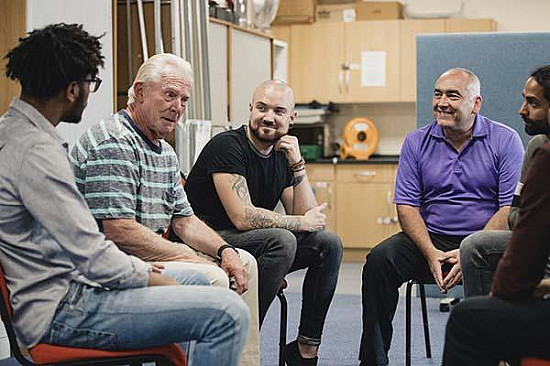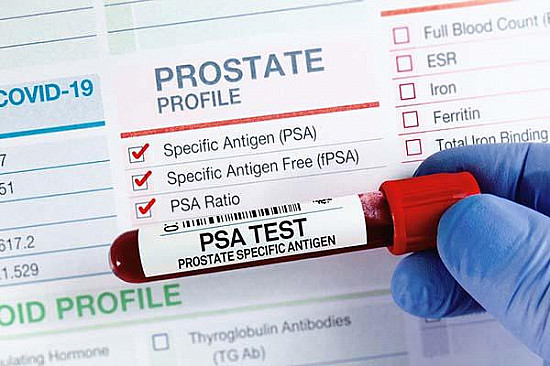
Driving with arthritis pain: Stay comfortable — and safe — behind the wheel

Daily cup of coffee may prevent afib recurrence

Gene-editing therapy lowers harmful blood fats in early study

What is EMDR therapy, and who can it help?

GLP-1 drugs versus bariatric surgery for treating obesity

Two dumbbells, three exercises, and 10 minutes

Easing the emotional burden of IBS

Modify your push-ups to meet your fitness level

What is long QT syndrome?

Stroke survivors may benefit from very low LDL levels
Understanding the risks of supplements and herbal remedies for prostate cancer
Exercise caution before employing natural remedies in lieu of medicine therapy.

Coping with prostate disease is never easy. You may find that established treatments are not always particularly effective and you may want to try other more natural methods for prostate cancer, such as herbs and supplements. But you should use them with caution, and always check with your doctor before taking any new type of medication.
An estimated one-third of American men with prostate cancer use at least one form of complementary medicine therapy, including herbs and supplements. Some studies have suggested herbs and supplements might help with prostate cancer treatment and support. But the main concern is that some herbs and supplements can interact with each other, or with your prescribed medications. For example, they may enhance the effects of some medications or negate any benefit.
One of the most common interactions involves herbs like St. John's wort that affect the liver by acting on cytochrome P450 enzymes, which metabolize drugs.
Other herbs, like saw palmetto, which some men take for benign prostatic hyperplasia (enlarged prostate) and melatonin supplements, which some men take in hopes it will slow the progression of prostate cancer, may increase their risk of bleeding when taken with other drugs like aspirin, ibuprofen, naproxen, anticoagulants, or antiplatelet medications.
Another issue is that it's not 100% clear if herbs and supplements might protect against prostate cancer or slow its growth. There are also concerns they may even increase your risk.
One of the most publicized studies on supplements and prostate cancer is the SELECT (Selenium and Vitamin E Cancer Prevention Trial) study, which explored the use of vitamin E and selenium supplements. Preliminary studies suggested that both might reduce a man's risk of prostate cancer. Yet, the SELECT results, published in 2011 in JAMA, found that men who took vitamin E supplements had a 17% increased risk of prostate cancer compared with men who took a placebo.
In 2014, researchers, using data from the SELECT study, found that high doses of vitamin E (400 international units per day) or selenium (200 micrograms per day) showed no benefit among men at risk for prostate cancer, and in some cases the supplementations even posed a danger. For instance, those with already high selenium levels at the study's launch increased their risk of high-grade prostate cancer by 91% after taking the selenium supplements. Also, among men with low selenium levels, vitamin E supplementation increased their total risk of prostate cancer by 63% and increased their risk of high-grade cancer by 111%.
The bottom line is that herbs and supplements are not miracle workers, and while they may benefit some men with prostate diseases, you should consult with your doctor about whether they can support your choice of treatment, management, and prevention.
– By Matthew Solan
Executive Editor, Harvard Men's Health Watch
Sources:
http://jamanetwork.com/journals/jama/fullarticle/1104493
https://academic.oup.com/jnci/article-lookup/doi/10.1093/jnci/djt456
Disclaimer:
As a service to our readers, Harvard Health Publishing provides access to our library of archived content. Please note the date of last review or update on all articles.
No content on this site, regardless of date, should ever be used as a substitute for direct medical advice from your doctor or other qualified clinician.

Driving with arthritis pain: Stay comfortable — and safe — behind the wheel

Daily cup of coffee may prevent afib recurrence

Gene-editing therapy lowers harmful blood fats in early study

What is EMDR therapy, and who can it help?

GLP-1 drugs versus bariatric surgery for treating obesity

Two dumbbells, three exercises, and 10 minutes

Easing the emotional burden of IBS

Modify your push-ups to meet your fitness level

What is long QT syndrome?

Stroke survivors may benefit from very low LDL levels
Free Healthbeat Signup
Get the latest in health news delivered to your inbox!
Sign Up




